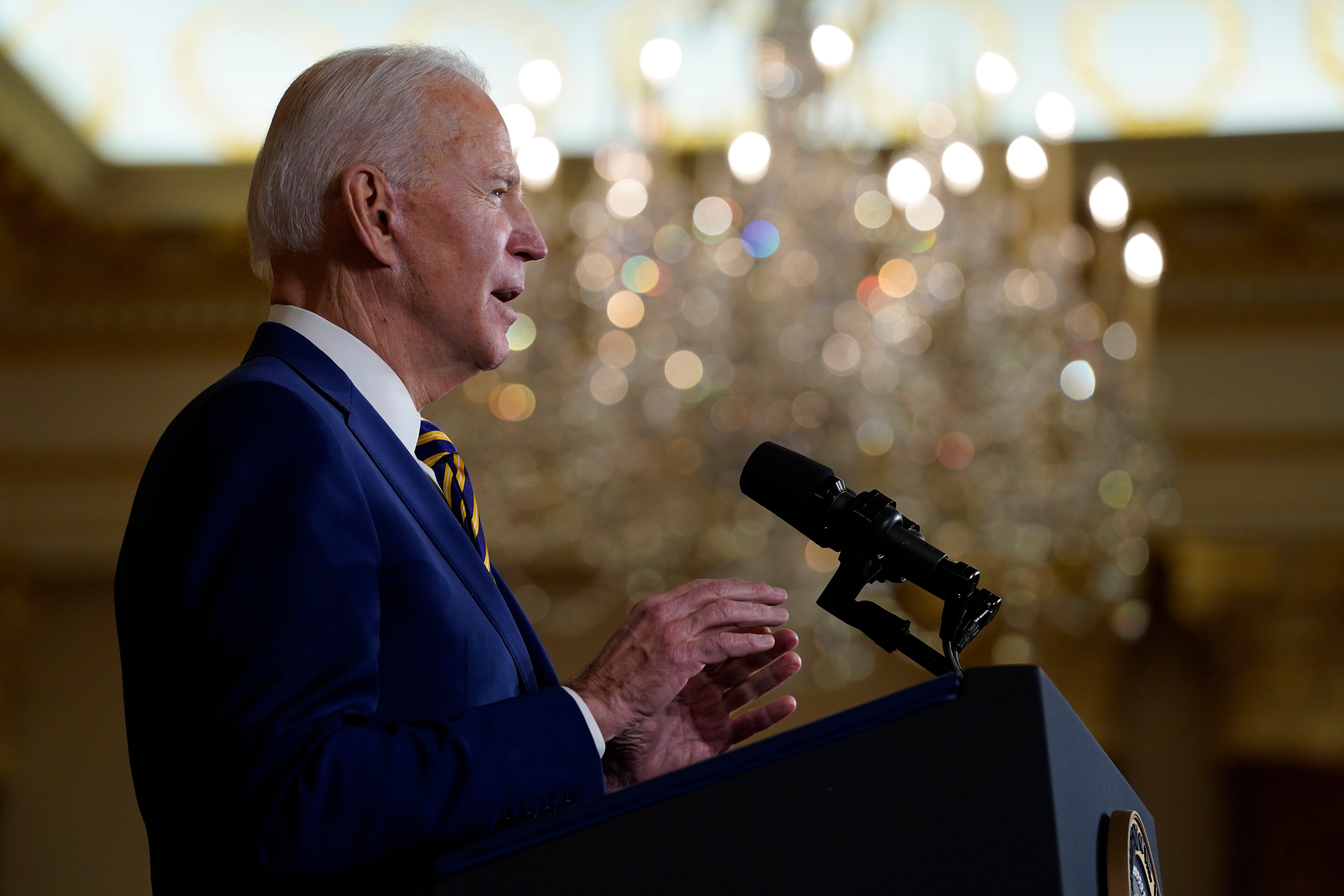Biden halts Trump-ordered US troops cuts in Germany
President Joe Biden has formally stopped the planned withdrawal of U.S. troops from Germany that was ordered last year by the Trump administration but had never actually begun

Your support helps us to tell the story
From reproductive rights to climate change to Big Tech, The Independent is on the ground when the story is developing. Whether it's investigating the financials of Elon Musk's pro-Trump PAC or producing our latest documentary, 'The A Word', which shines a light on the American women fighting for reproductive rights, we know how important it is to parse out the facts from the messaging.
At such a critical moment in US history, we need reporters on the ground. Your donation allows us to keep sending journalists to speak to both sides of the story.
The Independent is trusted by Americans across the entire political spectrum. And unlike many other quality news outlets, we choose not to lock Americans out of our reporting and analysis with paywalls. We believe quality journalism should be available to everyone, paid for by those who can afford it.
Your support makes all the difference.President Joe Biden has formally stopped the planned withdrawal of U.S. troops from Germany that was ordered last year by the Trump administration but had never actually begun.
Speaking at the State Department on Thursday, Biden said the troop pullout would be halted until Defense Secretary Lloyd Austin does a review of America's troops presence around the globe. Austin, he said, will ensure that “our military footprint is appropriately aligned with our foreign policy and national security priorities.”
Last year, then-President Donald Trump announced that he was going to pull out about 9,500 of the roughly 34,500 U.S. troops that are stationed in Germany. The U.S. has several major military facilities in the country, including Ramstein Air Base, the headquarters for U.S. European Command and U.S. Africa Command, and Landstuhl Regional Medical Center, the largest American hospital outside the United States.
Trump's order met resistance from Congress as well as from within the military, which has long relied on Germany as a key ally and base of operations. Trump announced the troop cuts after repeatedly accusing Germany of not paying enough for its own defense, calling the longtime NATO ally “delinquent” for failing to spend 2% of its GDP on defense, the alliance benchmark.
The Pentagon began a review, to determine which troops would be redeployed to other locations and which would remain in Germany. That study has been ongoing, and there have been no reductions or changes to U.S. troop levels since Trump’s announcement.
Austin hinted at a likely reconsideration of the order in a conversation with his German counterpart last week.
Chief Pentagon spokesman John Kirby said the issue of troop cuts came up during Austin's call with German Defense Minister Annegret Kramp-Karrenbauer, and that Austin made it clear that he wants to review America’s force posture around the globe.
“What he did assert to the defense minister was that whatever decision we make, we’ll do it in consultation with her and her government,” Kirby said, adding that Austin “made it very clear that he values the support that we’ve received for so many years from Germany.
German officials have hoped that order will be rescinded by the new administration, and the German Defense Ministry said that in Austin’s call with Kramp-Karrenbauer he “emphasized that Germany is highly valued as a station and that American soldiers feel very comfortable here.”
“The U.S. continues to consider its presence in Germany as an important part of joint security,” the Defense Ministry said in a readout of the call.
_____
Associated Press writer Aamer Madhani contributed to this report.